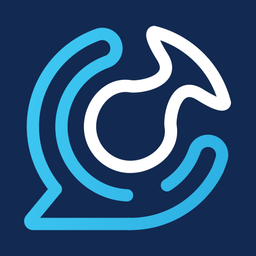Marketing is all about effectively communicating with your audience. But how can you ensure your message resonates with them and drives them to action? One powerful technique is the Problem-Agitate-Solution (PAS) framework.
At its core, the PAS framework is a copywriting strategy designed to capture attention, stir emotions, and compel action. By first identifying a problem your audience faces, agitating it by emphasizing its implications, and then offering a solution, you create a persuasive narrative that can significantly improve the effectiveness of your marketing efforts.
Whether you're crafting an email campaign, social media ad, or a landing page, the PAS framework can be an invaluable tool. Not only does it help clarify your message, but it also aligns it with your audience's needs and interests. The result? Higher engagement, improved conversion rates, and stronger customer relationships.
For entry-level marketers, mastering the PAS framework can serve as a stepping stone into the world of branding. It's not just about presenting your product or service; it's about telling a story that your audience can connect with, a skill that's crucial in today's competitive marketplace.
Coming up, we'll explore the PAS framework in more detail, including how you can apply it in different contexts and its effectiveness when used alongside AI tools like ChatGPT.
The Breakdown: What is the PAS Copywriting Framework?
The PAS (Problem-Agitate-Solution) copywriting framework is a powerful approach that can significantly enhance the impact of your marketing messages. Let's break it down:
This simple, yet effective framework can be applied to almost any marketing situation, from social media posts to email campaigns. By directly addressing your audience's pain points and offering a solution, you create a narrative that resonates, engages, and compels. This is why PAS is considered a fundamental skill in marketing and an essential tool for anyone looking to make a mark in the field.
PAS vs AIDA: How do they Differ?
While both the PAS (Problem-Agitate-Solution) framework and AIDA (Attention-Interest-Desire-Action) model are highly effective marketing tools, they have their unique strengths and weaknesses. Understanding these differences can help you determine which strategy best suits your needs.
The table below presents a comparative analysis of PAS and AIDA:
| PAS | AIDA | |
|---|---|---|
| Strengths |
|
|
| Weakness |
|
|
While both frameworks have their strengths, the choice between PAS and AIDA depends on the specific context and objectives of your marketing initiative. PAS is highly effective when your audience is aware of the problem, and you want to emphasize the necessity of your solution. On the other hand, AIDA is a versatile tool that can be used in a variety of marketing contexts, particularly when you're introducing a new product or service to an audience.

If you're interested in reading more about the AIDA, check out our useful guide for C
The PAS Formula for Emails
Using the PAS framework for writing emails can be a highly effective approach to connect with your audience. The subject line should ideally hint at the problem that your audience is likely facing. Following that, your email should succinctly elaborate on the problem, stir the readers' feelings about it, and provide your solution.
Let's delve into an example:

This email follows the PAS structure - it starts by addressing a common problem that many website owners face, agitates the problem by explaining the potential negative effects, and finally introduces the solution, coupled with a call to action to try the analytics tool.
Using the PAS framework in this way can help you construct emails that are not only engaging but also motivate your readers to take action.
Leveraging ChatGPT with the PAS Framework
As we've covered the theoretical aspects of the PAS framework and how to use it in writing, it's time to delve into the practical part of it. Specifically, we'll see how we can leverage the power of AI, like ChatGPT, to apply the PAS framework to content creation.
As a versatile AI language model, ChatGPT can generate content based on the information and instructions provided to it. You can use it to create content following the PAS framework by clearly structuring your prompt in the Problem-Agitate-Solution format.
Lets try making a prompt for a fitness app with the PAS framework. I liked the prompt that Laura shared in her article about creating a fitness trainer, and given the mad-libs style, I can build something where users can just input their wants and it'll give a personalized workout plan automatically.

Here's a prompt for ChatGPT:
ChatGPT's response would generate an ad like this:

Problem: "Are you tired of struggling to stay motivated and consistent with your fitness goals? Do you find it challenging to maintain a regular workout routine?"
Agitate: "It's frustrating when you invest time and effort into fitness but don't see the desired results. Remembering to exercise daily can be a struggle, and generic workout plans just don't cut it."
Solution: " Look no further! FitFlex is here to revolutionize your fitness journey with personalized workout plans, progress tracking, and daily reminders, all in one powerful app."
This example demonstrates the capabilities of ChatGPT and the level of content that can be generated using well-structured prompts. It also illustrates the versatility and applicability of the PAS framework in various content forms, be it social media ads, emails, or other marketing materials. But like with all things, make sure to edit things for your brand.
Why ChatGPT Coupled with PAS is Useful for Entry-Level Marketers
The versatility and ease of use of ChatGPT make it a valuable tool for entry-level marketers. And when coupled with the PAS framework, it becomes an even more powerful resource. Here's why:
- Efficiency and Productivity: With ChatGPT, you can generate a variety of content - be it social media posts, email campaigns, or blog articles - much faster than writing everything from scratch. This saves time and allows you to focus on other key areas of marketing.
- Consistency: Utilizing a well-defined structure like the PAS framework ensures consistency in your messaging across different platforms and types of content. This is crucial for maintaining brand image and voice.
- User Engagement: The PAS framework is designed to tap into the reader's emotions and motivate them to take action. Coupling this with the AI's capability to produce engaging and relevant content can result in higher user engagement.
- Learning and Development: As an entry-level marketer, mastering different content creation strategies like the PAS framework, and learning to use AI tools like ChatGPT, can significantly enhance your skills and open doors for career growth.
Using AI doesn't replace the creative process, but it can certainly aid it. With AI and the PAS framework at your disposal, you'll be well-equipped to create effective and persuasive content for your brand or business.
By leveraging the combined power of AI and the PAS framework, marketers at all levels can drive better engagement, improve brand consistency, and increase overall productivity.
A Guide to Better Branding for Entry-Level Marketers
Branding is about more than just a catchy logo or a memorable slogan. It's about communicating the core values of your business and connecting with your audience on an emotional level. And for entry-level marketers looking to make an impact in branding, the PAS framework provides a powerful tool.
- Problem Recognition: In the context of branding, the 'Problem' step is about identifying a challenge or need that your target audience is facing. This could be anything from a lack of efficient solutions in the market to a need for better customer service.
- Agitation: Here, you intensify the problem by highlighting its consequences, thus evoking an emotional response in your audience. In branding, this emotional connection is key – it's what distinguishes your brand and creates a lasting impression.
- Solution: The 'Solution' is your brand – the unique offering that addresses the problem and resolves the agitation. This is where you get to showcase what sets your brand apart and why it's the best choice for your target audience.
Leveraging the PAS framework as a branding tool can give you a competitive edge in the market. It guides you to understand your audience, connect with them emotionally, and present your brand as the ultimate solution – essential skills for any marketer, regardless of experience level.
It's important to remember that while the PAS framework is a powerful tool for content creation and branding, it's just one of many strategies that can be used. Experimenting with different approaches and adapting to your audience's responses is the key to effective marketing. After all, understanding your audience is at the heart of marketing – and tools like ChatGPT and frameworks like PAS can help you do just that.






